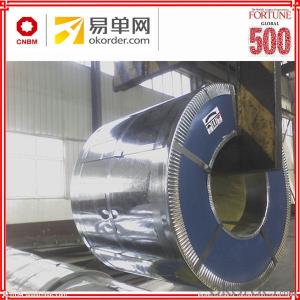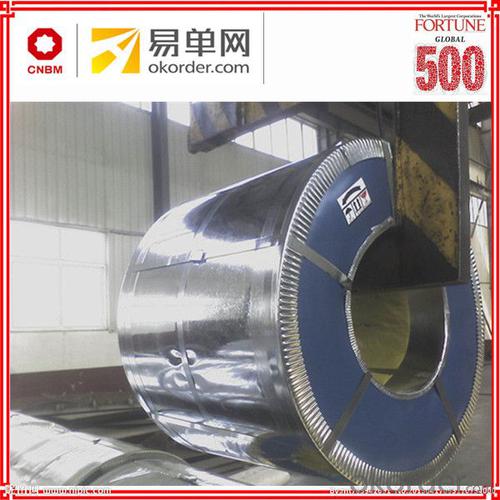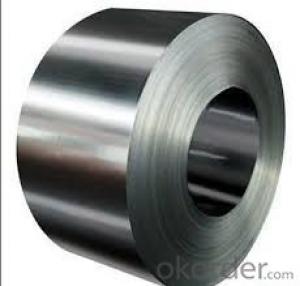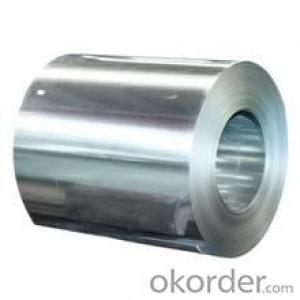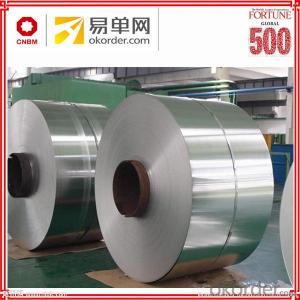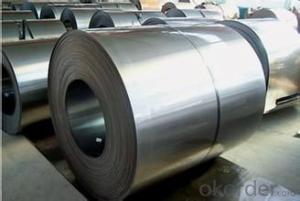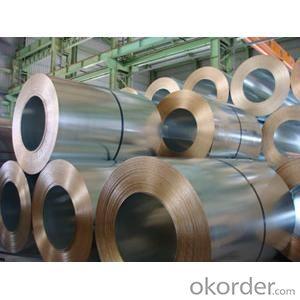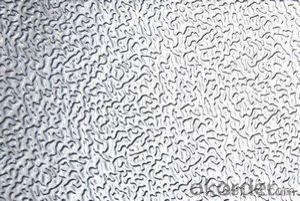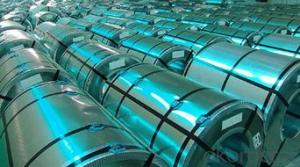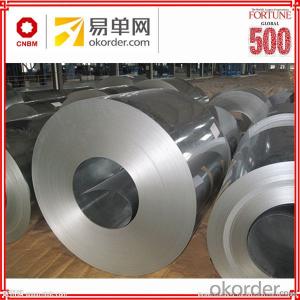Black annealed cold rolled steel coil wholesale alibaba
- Loading Port:
- China main port
- Payment Terms:
- TT OR LC
- Min Order Qty:
- 50 m.t.
- Supply Capability:
- 63245 m.t./month
OKorder Service Pledge
OKorder Financial Service
You Might Also Like
Specification
Cold rolled sheet products have been available for many, many years, and have been successfully used for a multitude of applications. Today's cold rolled sheet products are much improved over those used in the past. They offer better control of thickness, shape, width, surface finish, and other special quality features that compliment the emerging need for highly engineered end use applications.
Standard and Grade :
Cold rolled steel coils | ||||
JIS G3141-2005 | EN10130-2006 | ASTM A1008-12a | ||
Commercial quality | SPCC | DC01 | CS Type A/B/C | |
Drawing quality | SPCD | DC03 | DS Type A/B | |
Deep drawing quality | SPCE SPCF(non aging) | DC04 | DDS | |
Extra deep drawing quality | SPCG(non aging) | DC05/06 | EDDS | |
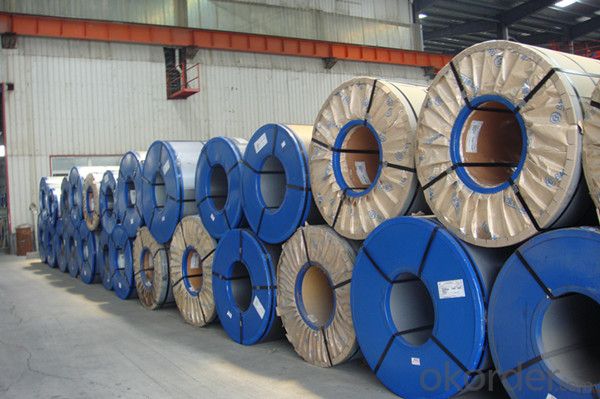
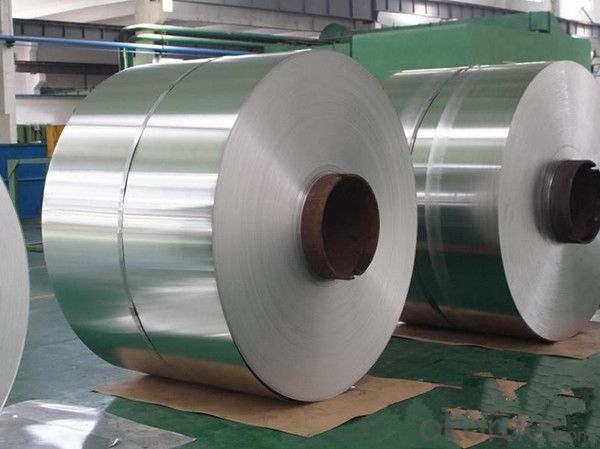
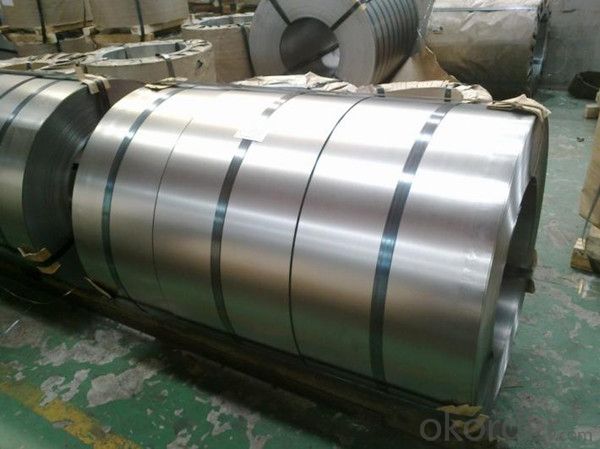
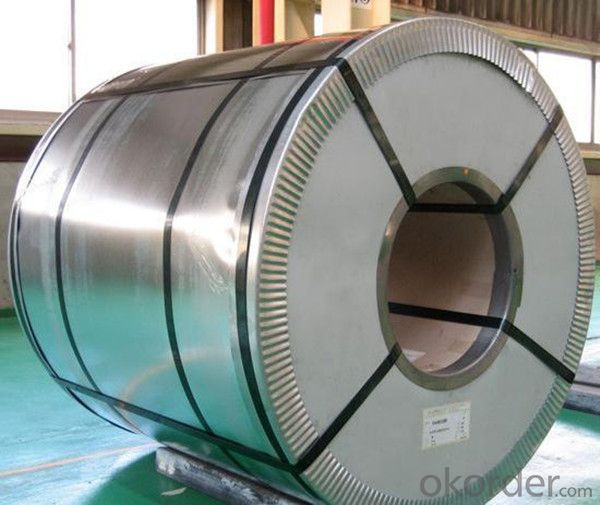
Application :
Automobile Industry, White Goods, Home Applicances, Oil & Air filters, semi product for coating with enamel or zinc,
construction & building sector, air-conditioning, furniture, radiators, tubes, profiles, mechanical construction, shelving,
containers, drums
Packing:
Packaging Detail | The packing of coil consists of anti-damp paper ,PVC film ,hardboard paper , steel box , strapped with steel strips, fitted with locks and edge protectors and guarantees the optimal condition of the delivered goods. Each coil can be additionally fitted with wooden/steel skids(eye of the side) or wooden pallets(eye of the sky) |
Delivery Time | within 30 days of receipt of LC original or prepayment |
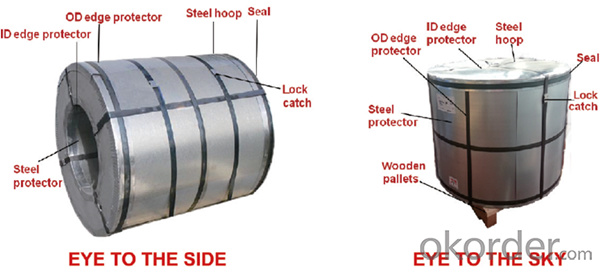
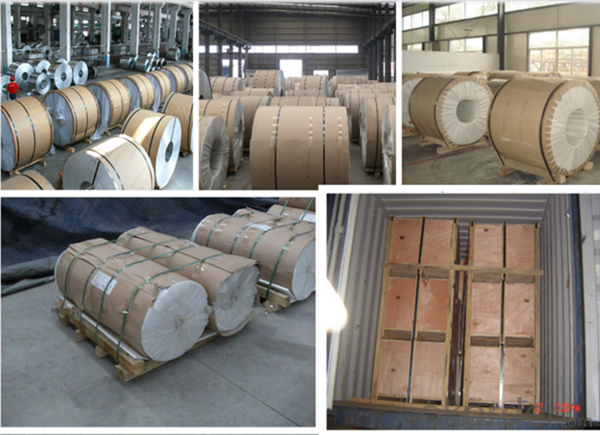
FAQ:
1. Can you offer OEM to me? What about MOQ?
Of course, we are a professional with OEM manufacturer for 9 years. the MOQ can be 50 ton/ order..
2. How to guarantee the quality of the products?
We have established the international advanced quality management system,every link from raw material to final product we have strict quality test;We resolutely put an end to unqualified products flowing into the market. At the same time, we will provide necessary follow-up service assurance.
3. How long can we receive the product after purchase?
Usually within thirty working days after receiving buyer’s advance payment or LC. We will arrange the factory manufacturing as soon as possible. The cargo readiness usually takes 15-25 days, but the shipment will depend on the vessel situation.
4.How Can I Get Some Sample?
We are honored to offer you free sample, but courier charges will be on your side.
- Q: What are the different types of steel coils available?
- There are several different types of steel coils available, each with its own specific properties and uses. 1. Hot Rolled Steel Coils: These coils are produced at high temperatures and are commonly used in applications that require a smooth and polished finish, such as automotive parts, construction materials, and machinery. 2. Cold Rolled Steel Coils: These coils are processed at lower temperatures to improve the surface finish and dimensional accuracy. They are widely used in industries such as automotive, appliances, and electronics, where a high level of precision is required. 3. Galvanized Steel Coils: These coils are coated with a layer of zinc to protect the underlying steel from corrosion. They are commonly used in construction materials, roofing, and automotive parts that are exposed to harsh environmental conditions. 4. Stainless Steel Coils: These coils are made from a combination of iron, chromium, and other elements to provide excellent corrosion resistance and high strength. They are widely used in applications that require hygiene, such as food processing equipment, medical instruments, and kitchen appliances. 5. Electrical Steel Coils: These coils are specifically designed for applications that require magnetic properties, such as transformers, electric motors, and generators. They have low core losses and high permeability to efficiently transfer electrical energy. 6. Pre-painted Steel Coils: These coils are coated with a layer of paint or other protective coatings to enhance their aesthetic appeal and provide additional protection against corrosion. They are commonly used in the construction industry for cladding, roofing, and siding. 7. Tinplate Steel Coils: These coils are coated with a thin layer of tin to prevent corrosion and provide a barrier against moisture and oxygen. They are widely used in the packaging industry for cans, containers, and other food or beverage packaging. These are just a few examples of the different types of steel coils available in the market. Each type has its own unique properties and applications, making them suitable for various industries and purposes.
- Q: What are the common quality control measures for steel coils?
- Some common quality control measures for steel coils include inspection for surface defects such as scratches, dents, or unevenness, checking for dimensional accuracy and thickness consistency, testing for mechanical properties such as tensile strength and hardness, conducting chemical composition analysis, and ensuring proper packaging and labeling of the coils.
- Q: I don't know why but I'm having a VERY difficult time finding the melting point of 1008 steel.
- It is still the same for 1008 steel. Go to the bottom and see the listing of the grades it covers. Since the only difference between the 1006 and 1008 steel is a few micro amounts of alloys and by far the greatest majority or main component is iron (99%), as a general melt temperature , 2750 F is the melt temperature at which the other alloys are added to the charge to fine tune the mix. Just like adding salt to distilled water actually lowers the boiling point of water, adding alloys to iron decreases the melting point of iron. The iron melts at 2800F, but once alloys to make the 1008 grade are added, it decreases melt temp to 2750F. Since the melting point of pure iron is 2800F, the temperature is actually decreased by adding these impurities of alloys. These alloys are tested while the mix is starting to come down from a pure melt, steel is sampled. and then alloys below are checked and added to make the 1008 steel. The steel is maintained at 2750 F so that the less volatile alloys don't boil off before combining with steel. Minimum Properties Ultimate Tensile Strength, psi 43,900 - 51,900 Yield Strength, psi 26,100 - 34,800 Elongation 42 - 48% Chemistry Iron (Fe) 99% Carbon (C) 0.08% Manganese (Mn) 0.6% max Phosphorus (P) 0.035% max Copper (Cu) 0.2% min Sulfur (S) 0.04%
- Q: How are steel coils used in the production of agricultural implements?
- Steel coils are used in the production of agricultural implements as they are formed and shaped into various components such as blades, tines, or plowshares. These sturdy and durable steel components are then assembled into agricultural machinery like plows, cultivators, or harrows, which are essential for tasks like tilling soil, planting crops, and harvesting. The strength and resilience of steel make it an ideal material for agricultural implements, ensuring they can withstand the demanding conditions of farming and contribute to efficient and effective agricultural operations.
- Q: What are the common standards and specifications for steel coils?
- The common standards and specifications for steel coils include ASTM A36/A36M, ASTM A572/A572M, ASTM A1011/A1011M, and ASTM A653/A653M. These standards outline the requirements for the chemical composition, mechanical properties, dimensions, and other characteristics of steel coils used in various industries, such as construction, automotive, and manufacturing. Additionally, international standards like EN 10025 and JIS G3101 are also commonly followed in different regions.
- Q: How are steel coils used in the production of construction materials?
- Steel coils are commonly used in the production of construction materials due to their strength, durability, and versatility. These coils are typically made from high-quality steel and are formed into a continuous, cylindrical shape. In the production of construction materials, steel coils are used in various ways. One primary application is in the manufacturing of steel beams, which are essential components in the construction of buildings, bridges, and other structures. Steel coils are processed and shaped into the desired size and dimension, allowing them to be easily formed into beams that can withstand heavy loads and provide structural support. Another important use of steel coils in construction materials is in the production of roofing materials. These coils are often transformed into corrugated sheets, which are widely used as roofing panels. The durability and weather resistance of steel make it an ideal choice for protecting buildings from the elements, including rain, snow, and strong winds. Additionally, these steel coils can be coated with protective layers to enhance their longevity and prevent corrosion. Steel coils are also employed in the production of construction materials such as pipes, tubes, and poles. These coils are formed into the desired shape and size, allowing for the creation of strong and reliable components for infrastructure projects. Whether it is for underground pipelines, structural support systems, or utility poles, steel coils provide the necessary strength and durability required for these construction materials. Furthermore, steel coils play a crucial role in the production of construction materials used in the fabrication of various fixtures and fittings. From door frames and window frames to reinforcement bars and wire mesh, steel coils are processed and shaped to meet specific requirements. This versatility allows for the creation of a wide range of construction materials that are essential for the completion of buildings and infrastructure projects. In conclusion, steel coils are extensively used in the production of construction materials due to their strength, durability, and versatility. From steel beams and roofing materials to pipes and fixtures, these coils are transformed into various shapes and sizes to meet the specific needs of construction projects. The use of steel coils ensures that construction materials are strong, reliable, and capable of withstanding the demands of the built environment.
- Q: How are steel coils used in the production of industrial equipment?
- The utilization of steel coils is essential in the manufacturing of industrial equipment. These coils, which are large sheets of steel that are flat and rolled, serve as vital raw materials for various manufacturing processes. To begin with, steel coils are employed for the purpose of fabrication. They are cut, shaped, and welded together to form the structural framework of industrial equipment. This encompasses machinery, heavy-duty vehicles, storage tanks, and other components utilized in industries. The coils provide the necessary strength and durability to withstand the demanding conditions faced by industrial equipment. Furthermore, steel coils are frequently molded into specific shapes to produce various parts and components used in industrial machinery. These parts may include gears, shafts, bearings, brackets, and many others. The malleability of steel allows for easy manipulation and fabrication into different sizes and shapes, making it an ideal material for such applications. Moreover, steel coils are also utilized in the construction of industrial equipment, particularly in the production of boilers, heat exchangers, and pressure vessels. These coils are typically fashioned into tubes or pipes, which are then welded or brazed together to create the necessary structure for such equipment. The high strength and heat resistance properties of steel make it the preferred material for these applications, ensuring the safe and efficient operation of industrial processes. In conclusion, steel coils play a pivotal role in the manufacturing of industrial equipment. They serve as raw materials for fabrication, are transformed into parts and components, and are used in the construction of crucial equipment like boilers and pressure vessels. The durability, strength, and versatility of steel make it an indispensable material in the manufacturing industry.
- Q: I plan to buy a bushcraft knife ..The blade made up by damascus steel.My question is ,is damascus steel is very strong ?
- Pattern welded /damascus is too expensive to use as an everyday knife, as it can cost more than silver. It's best kept as a collection piece. You'd be stupid to keep it in your pocket or use it everyday. that would be a waste of money. Knives you use everyday might be lost or stolen, or they may get rusted, worn, or dirty..... ruining their value. From that point of view the strength or edge-holding ability means very little. Specifically, the bushcraft knife is pattern welded steel. True damascus or Wootz steel is something you'll only find in museums and private collections. they stopped making it several hundred years ago. Despite what many people have claimed, Wootz damascus was inferior to modern tool steels in every respect. It was a brittle, dirty material. It's legendary status has more to do with myth and storytelling. The reason they stopped making was undoubtaby because more modern methods came along that produced a more consistent product, more quickly and easily. Old technologies tend to be abandoned for good reasons. With pattern welded steel, about a dozen strips of two different grades of steel have been stacked, welded together, the twisted and forged to create interesting patterns. This more of an artistic process and doesn't improve the properties of modern steels. Pattern welded steel is for the most part, inferior to a homogenous blade made of a single grade of steel. First of all, PW is a handmade product which means there will be faults and oxide inclusions incorporated into the steel. The welding process is not perfect. Secondly, in the hardening and tempering process you end up with a compromise between the properties of the two different grades of steel. You end up with a product that is not quite as good as either steel would have been individually. The blade may either be too brittle or too soft.
- Q: Hey I just got a mini 14 manufactured in 1980. I also had some .223 Wolf steel cased HP rounds (about 200) that i could shoot throught it, but I was just wondering if its a bad idea to use this steel cased ammo...? Only the casing is steel i believe... and the bullet is copper jacketedthanks for your help
- I have had significant ejection and rechambering problems with Wolf semi-auto handgun ammo. It took forever to clean the fouling that the lacquered ammo generated too. I do not know about the rifle ammo, but I won't tempt fate over cheap rounds again.
- Q: What are the challenges in coil leveling for high-strength steel?
- One of the main challenges in coil leveling for high-strength steel is the material's inherent strength and hardness. High-strength steel is designed to have superior mechanical properties, which can make it difficult to manipulate and flatten during the leveling process. The high tensile strength and increased yield strength of the steel can cause it to resist deformation, leading to springback or permanent deformation issues. Additionally, the increased hardness of the steel can put more strain on the leveling equipment, potentially leading to wear and tear. Proper equipment selection, precise control of leveling parameters, and advanced process monitoring techniques are required to overcome these challenges and achieve accurate and consistent coil leveling results for high-strength steel.
Send your message to us
Black annealed cold rolled steel coil wholesale alibaba
- Loading Port:
- China main port
- Payment Terms:
- TT OR LC
- Min Order Qty:
- 50 m.t.
- Supply Capability:
- 63245 m.t./month
OKorder Service Pledge
OKorder Financial Service
Similar products
Hot products
Hot Searches
Related keywords
